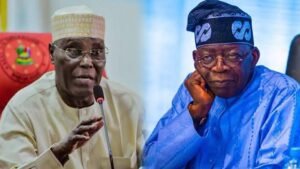
Nigeria’s unemployment rate now stands at 23.1 per cent, up from the previous rate of 18.8 per cent released in the third quarter of 2017, the country’s National Bureau of Statistics said on Wednesday.
Partime employment/underemployment slowed to 20.1 per cent in the third quarter of 2018 from 21.2 per cent in the third quarter of 2017.
Q4 2017-Q3 2018 Labor force report-Vol 1:Unemployment& Underemployment published. Report link @ https://t.co/3VyJ0ShYjS. Unemployment rises from 18.1% in Q3 2017 to 23.1% in Q3 2018. Partime employment/Underemployment remains at to 20.1% in Q3 2018 from 21.2% in Q3 2017 pic.twitter.com/yBN6mwIv54
— Dr Yemi Kale (@sgyemikale) December 19, 2018
Although there was a marginal increase in the number of people employed from to 69.09 million in Q3 2017 to 69.54 million in Q3 2018, the total number of people unemployed upped from 17.6 million in the fourth quarter of 2017 to 20.9 million in the third quarter of 2018.
The latest figures are grimmer than what the government has been touting.
A presidential spokesman told Channels Television that the chief executive of the statistics office told a meeting of cabinet members last week that analyses of job rates were largely focused on white-collar jobs.
“The had concentrated analysis overtime on white-collar jobs,” Garba Shehu said.
“They had not taken cognisance of job creation in Agriculture.”
Shehu argued that the figures collected by NBS in recent part had been unfair to President Muhammadu Buhari strides in job creation in Agriculture.
READ: Magu condemns ex-CDS Badeh’s murder, condoles with family
“We have created at least 12 million jobs in the area of agriculture,” Shehu added.
The latest figures were the latest to be released by the statistics office in almost a year. Kale said the NBS was too cash strapped to provide regular updates until now.
“The work can’t be completed due to budgetary releases,” Yemi Kale, who heads NBS, tweeted on November 14.
“It’s not hard to confirm when last we got data funding and how much.”
The statistics office is also unable to publish trade, GDP and inflation figures, Kale said.










